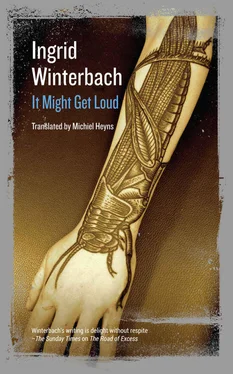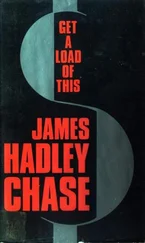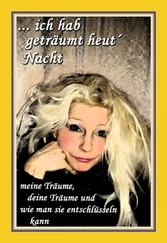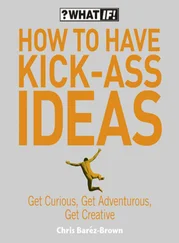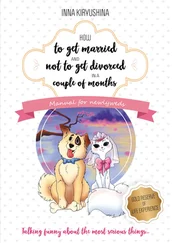*
Now I have to tell you about Josias Brandt and myself, Jakobus continues, about the road we have travelled together. Josias, my friend the pig farmer and neo-colonist, virtual trapeze artist and knife-thrower of the imagination.
We were good friends, and then it came about that we didn’t speak to each other for seventeen years. During that entire period not a word, letter or syllable passed between us. I wanted to know nothing about him, I averted my gaze from reports on him.
How did it happen? It was the start of a very bad period in my life. Actually a cataclysmic time, my prospects on every level — emotional, financial, artistic — were not good. There were problems at home. Alliances were formed (alliances and conspiracies); my personal life was a war zone. I spare you the details. You don’t know all the dramatis personae in any case. (A formidable cast; some of the actors would shape very well as Cape Flats gangsters, Renaissance conspirators and assassins, and Mafia henchmen.)
Josias tried to intervene. I misread his motives. I believed I was the wronged party. In retrospect I realise that it wasn’t a sinister move, as I assumed at the time, just bad timing on his part. It was all-in-all a situation that hardly brought out the best in people — everything had a kind of psychotic edge and nobody was above suspicion. That’s how I experienced it. I banished Josias summarily from my life on the grounds of his interference. (‘Take thy hated back from this our kingdom.’)
At this time I had terrifying dreams. My father stands headless in a godforsaken industrial plot, dressed in a dour jacket and flannel trousers, such as he wore to my rugby matches.
Then, seventeen years later, thanks to the intervention of another friend, I came here on one autumn morning. We’re going to visit Josias today, my friend had said. What made the reunion easier was the fact that this friend and Josias in fact couldn’t stand each other. That made me realise that he had done it for my sake; there are larger forces at work here.
That was three years ago. That day I was wearing red tracksuit pants, with a white stripe down the leg, a brown paramilitary jacket (good sub-economic apparel) and army boots.
Josias welcomed me as if I’d never been away — the lost brother — with aplomb and exuberance. He plunged into one of the chaotic chambers and brought out a few of my sculptures. Good grief! The friend whom I had banished from my kingdom had seen to it that some of my work was preserved. If it had depended on me, nothing would have remained of it, because once, on a destructive binge, I destroyed everything I’d ever made.
A gigantic black pig, looking more like a wild boar, started sniffing at my boots. (Last year, on my birthday, this self-same animal walked up the mountain with me to far above the settlement — because yes, that is what this place is in a certain sense — and down again. My totem animal.)
That day Josias took us on a guided tour of the establishment. I had ere then seen him create and inhabit imaginative, even phantasmagoric interiors, seen him plant things, seen him tame and raise by hand skunks and sparrows, but here everything was on a larger scale — a newer, more total onslaught.
Josias played the concertina and executed a Cossack dance with a pig. (The pig was crazy about it.) Every pig had a name. I met Nomsa Ndlovo, she was seven at the time. In her I saw a different, newer face of Africa: urbanised, cosmopolitan.
Josias let rip with a stream of anecdotes about the origin and growth of the farm. In truth he has not stopped to this day. He doesn’t remember in the same way as I. He remembers a different kind of detail. His memory attaches itself more closely to incidents. Somebody hanged himself in the uninhabited military watchtower; a well-known journalistic figure had to be kicked in the balls to restrain him, after he’d grabbed the keys from Josias and tried to seize command of the place. A low-life entrepreneur occupied one of the halls for his own profit and turfed Josias out. Various unprincipled types disappeared with precious loads of wood, drained the frog ponds, chucked 127 yellowwood saplings into the dustbin.
After that first visit I gradually visited more often. One of these visits issued in my meeting with the scandalously radiant, carnal Lucinda. (Who incidentally sashayed past here today as if she’s reinvented herself anew: to set everything that went before aside.)
Thus it came about that I settled here a few months ago. As I said earlier: a sojourn that I initially expected to be one of the most extraordinary chapters of my life, but that I now perceive as much more ordinary. I pick up pig shit, I dig holes to plant trees, I’ve had to make some adaptations and adjustments — some of them radical — because I have learnt to know people and worlds that I would never have discovered otherwise, not even in the new South Africa. Thus at the same time less and so much more than I’d counted on.
KARL HOFMEYR REMAINS SITTING in the Red Tea-Cosy for a long time. (What a ridiculous name for a place, he thinks.) After the wrong number jumped out so unexpectedly from the calendar behind the door, it takes him a while to get a grip on himself. He drinks his coffee, he counts, he recites his deflective mantras. No use trying to do anything else at this stage. First of all he has to calm down. Deep breaths, Juliana would say, mind over matter. You can’t let this thing dominate you, she’d say — you ’re in control, not this thing. (Yeah, sure, he thought.) The conversation with the Joachim-guy totally discombobulated him, that’s for sure. All that remains is for the Josias-guy to phone and shit all over him. He switches off his cell phone to guard against this eventuality. One thing at a time, one spaced-out conversation at a time.
He misses Hendrik. They often travel together. Hendrik is always smiling. With him by your side the world feels like a better place. He should never have undertaken this trip on his own. He should have known he was going to chop off big-time because this is no pleasure jaunt. Because from the start he’d had resistance to the trip. Because he doesn’t know what to expect; in what condition he’s going to find Iggy. He was a fool. He thinks of the lyrics to a Queensrÿche song: ‘Making misery is the way you spend your time/ I think it’s safe to say when it comes to the truth you’re blind.’ Blind as a fucking bat.
In Hamburg he and Hendrik went to listen to bands playing on the Reeperbahn. Wall-to-wall pimps in big cars. And these amazingly attractive women enticing the men. Some of the biggest bands often play there. Small, intimate gigs. Once he caught one of Megadeth’s drummer’s drumsticks there. So he gave it to a little chap who really wanted it; he saw him hunting all over for it. The little guy’s eyes were as wide as saucers. He said nothing, just grabbed the stick and cleared out, in case Karl changed his mind.
One evening they bumped into X-Factor (aka Gene Poole, aka Alex), the guitarist of Warrior Soul, in the street. Chatted a bit and said they’d like to meet the rest of the band. Karl wanted to meet the lead vocalist in particular. Come to the bar after the show, the chap said. Then a woman with a little dog arrived and X-Factor alias Alex greeted her exuberantly. Then that evening in the bar, after the gig, they met the rest of the group. He met Kory Clarke. Awesome vocalist. While they were talking, Kory Clarke grabbed an imaginary straw and snorted up an imaginary substance from the table. He tossed back his head, he laughed, all a joke. Then somebody else wanted to meet him and he was gone.
Karl’s eye falls on a poster on the wall. It’s an advertisement for a hypnotist performing in town this afternoon. Doctor Bruno. Sounds like a German pervert or paedophile. On the advertising leaflet is a drawing of a man with a blue face, an old-fashioned little Hollywood moustache and humungous black-and-orange psychedelic glasses, with all sorts of rays shooting out from his head. In one top corner: drbruno.co.za. Special assistance with weight loss, with giving up smoking, and with all varieties of inconvenient habits, it says at the bottom. This afternoon in the high school hall at four.
Читать дальше
